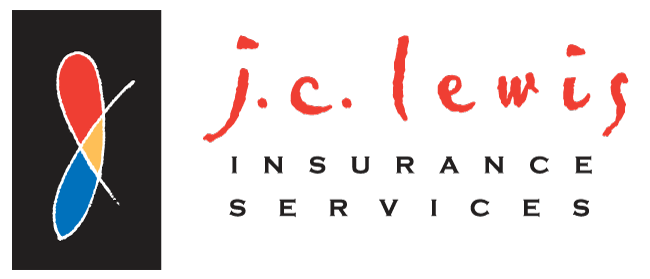Being a small business owner is not an easy feat.
In fact, the current business climate is somewhat like a roller coaster combined with the threat of hurricanes. Between financial uncertainty, COVID-19, civil unrest, and several other challenges, just staying in business is a major accomplishment for some owners.
However, despite the external pressures and uncertainties, one thing remains certain: you and your employees need health insurance coverage.
Health Insurance Requirements for Small Businesses
Of course, if you are a small business owner, it’s fair to ask, “Am I required to provide health insurance for my employees?”
The short answer is: “It depends.”
Under the Employer Mandate of the Affordable Care Act (ACA) all employers with 50 or more full-time equivalent (FTE) employees must offer affordable health insurance. If you have 49 full-time employees, or less, then you are not required to offer insurance under the mandates of the ACA.
However, there are many good reasons to offer health insurance anyway, such as helping to keep your employees healthy, encouraging employee retention, and staying competitive in the hiring market.
In addition, offering group health insurance to your workers provides several tax benefits, such as:
- Tax-exempt employer-provided premiums for group health plans.
- Tax-deductible employer contributions to employees’ premiums.
- Section 125 premium-only plans (or cafeteria plans), allow employees to pay their part of the premium with pre-tax dollars, reducing payroll taxes.
And, if you’re a small business with 24 or fewer full-time equivalent employees, you may qualify for the small business health care tax credit that can help make health insurance a bit more affordable. If your business meets all the criteria and qualifies, you can get a tax credit for up to half of your contributions toward employee premiums.
So, with no really good reason to forgo offering health insurance, let’s consider the top coverage options in 2020.
Health Insurance Options for Small Businesses
The rising cost of healthcare is a problem for individuals and even businesses that provide healthcare coverage. Small businesses have been particularly hard hit as the cost to cover one employee under group health insurance rose nearly 200 percent over the last 15 years.
However, there are viable options for small business owners in 2020:
- Traditional group health insurance
- Self-funded health insurance
- Individual coverage HRA (ICHRA)
- Qualified Small Employer HRA (QSEHRA)
- Group coverage HRAs
Traditional group health insurance
Group health insurance plans provide coverage to a group of company employees and members can receive insurance at a reduced cost since the insurer’s risk is reduced.
Employers offering group health insurance pay a fixed premium for the policy, though they often pass on a portion of the cost to employees. In addition, employees are responsible for copays and deductibles associated with the plan.
Small businesses typically purchase coverage through an insurance broker or the public Small Business Health Options (SHOP) marketplaces. Traditional group health insurance is relatively easy to obtain and most employees are already familiar with how it works.
Self-funded health insurance
With a self-insured plan, the employer takes on the financial risk for providing health care benefits to its employees. Employers pay for claims out-of-pocket as they are submitted. Typically, a self-insured employer will set up a special trust fund with corporate and employee contributions to pay employee claims.
According to the Health Care Administrators Association (HCAA),
“There are several reasons why employers choose the self-insurance option. The following are the most common reasons:
- The employer can customize the plan to meet the specific health care needs of its workforce, as opposed to purchasing a ‘one-size-fits-all’ insurance policy.
- The employer maintains control over the health plan reserves, enabling maximization of interest income – income that would be otherwise generated by an insurance carrier through the investment of premium dollars.
- The employer does not have to pre-pay for coverage, thereby providing for improved cash flow.
- The employer is not subject to conflicting state health insurance regulations/benefit mandates, as self-insured health plans are regulated under federal law (ERISA).
- The employer is not subject to state health insurance premium taxes, which are generally 2-3 percent of the premium’s dollar value.
- The employer is free to contract with the providers or provider network best suited to meet the health care needs of its employees.”
Individual Coverage HRA (ICHRA)
Beginning in 2020 employers may offer employer individual coverage health reimbursement accounts (ICHRA) as an alternative to traditional group health insurance plans. Employers may offer an ICHRA to reimburse employees for individual health insurance premiums, subject to satisfaction of several conditions.
One version is the Individual Coverage Health Reimbursement Arrangement (HRA), a specific account-based health plan.
An Individual Coverage HRA gives employers greater cost control by providing defined non-taxed reimbursements to employees for qualified health insurance costs such as monthly premiums for individual plans. This gives employees the flexibility to choose individual health insurance coverage, while employers reimburse the costs.
With the ICHRA, there are no annual contribution caps and employer allowance amounts can roll over month to month and year to year without restriction.
Qualified Small Employer HRA (QSEHRA)
With a QSEHRA small employers can also provide non-taxed reimbursement of certain health care expenses, like health insurance premiums and coinsurance, to employees. To offer a QSEHRA, an employer must have 49 or fewer full-time employees, and cannot offer a group insurance policy, unlike an ICHRA, which has no such requirements.
A Qualified Small Employer HRA has more restrictions on allowance amounts and benefits budgets than an ICHRA.
For example, with a QSEHRA, employers cannot offer allowance amounts that exceed annual caps set by the IRS. Those caps are $5,250 a year, or $437.50 a month, for single employees and $10,600 a year, or $883.33 a month, for employees with a family in 2020.
QSEHRA allowances can roll over month to month as well as year to year, but unlike with an ICHRA, the total amount of reimbursements made to employees in a year can never exceed the annual cap.
Employers can decide what they will contribute to their employees’ health care costs with a QSEHRA, up to the annual maximum. Employees pay their health provider or insurance company for their health care costs, then submit proof of payment to be reimbursed by the QSEHRA. Reimbursement is tax-free.
Group coverage HRAs
A group coverage HRA, also known as an integrated HRA, is an employer-funded medical reimbursement plan linked with an ACA compliant group health insurance plan.
According to WageWorks,
“An Integrated HRA is the more common type of HRA. This type of HRA is linked with the Affordable Care Act (ACA)-compliant employer-sponsored group health insurance plan. The Integrated HRA is offered only to company employees who elect group health insurance as a supplement to help with their out of pocket healthcare costs.”
Typically, an employer purchases a high deductible health plan to save employees money with lower premiums. The employer then offers a group coverage HRA to cover the difference between the old and new deductible. The employer also benefits since employee use of the HRA tends to be 30-50 percent, depending on the plan design.
Employees use group coverage HRAs for reimbursement of out-of-pocket medical expenses and it is common for plans to only reimburse deductible or co-insurance expenses that are also covered under the group health insurance plan.
Your Local Experts for Small Business Health Insurance Options
JC Lewis Insurance is a long-time family-owned firm made up of expert brokers and based in Sonoma County. We offer California small business health insurance plans from only the leading health insurance carriers that are licensed to do business in California.
In addition to being experienced, professional brokers, we are licensed and certified by each of these insurance carriers to offer coverage to individuals, families, and small group employers in addition to Medicare supplemental and prescription drug plans for seniors.
When you’re shopping for medical insurance for you and your family, you are likely to have a number of questions and concerns. That’s great because we welcome your questions about health coverage insurance and you can be confident that JC Lewis Insurance Services will help you find the right solution.

